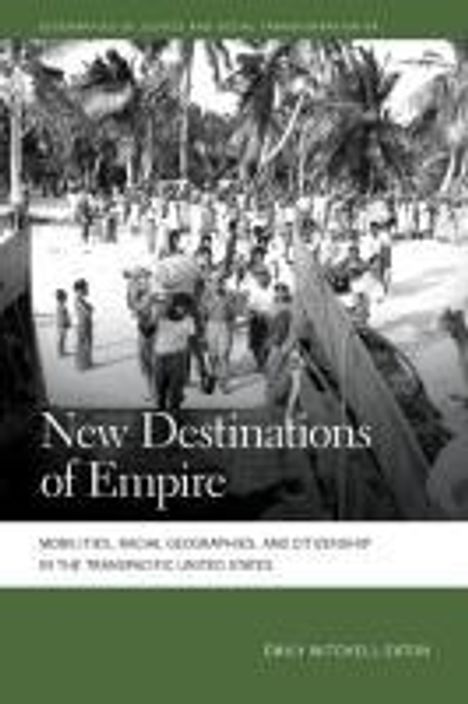Emily Mitchell-Eaton: New Destinations of Empire, Kartoniert / Broschiert
New Destinations of Empire
- Mobilities, Racial Geographies, and Citizenship in the Transpacific United States
(soweit verfügbar beim Lieferanten)
- Verlag:
- University of Georgia Press, 11/2024
- Einband:
- Kartoniert / Broschiert
- Sprache:
- Englisch
- ISBN-13:
- 9780820366913
- Artikelnummer:
- 11864444
- Umfang:
- 262 Seiten
- Gewicht:
- 390 g
- Maße:
- 229 x 152 mm
- Stärke:
- 15 mm
- Erscheinungstermin:
- 1.11.2024
- Hinweis
-
Achtung: Artikel ist nicht in deutscher Sprache!
Klappentext
"In 1986, the Compact of Free Association marked the formal end of U. S. colonialism in the Republic of the Marshall Islands, while simultaneously re-entrenching imperial power dynamics between the two countries. The U. S.-RMI Compact at once enshrined exclusive U. S. military access to the islands and established the right of 'visa-free' migration to the U. S. for Marshallese citizens, creating a Marshallese diaspora whose largest population resettled in the seemingly unlikely destination of Springdale, Arkansas. An 'all-white town' by design for much of the 20th century, Springdale has been remade by Marshallese as well as Latinx immigration, having nearly quadrupled in size since 1980. Through ethnographic, policy-based, and archival research in Guêahan, Saipan, Hawai'i, Arkansas, and Washington, D. C., New Destinations of Empire tells the story of these place-based transformations, revealing how U. S. empire both enables and constrains mobility for its subjects, shaping migrants' experiences of racialization, citizenship, and belonging in new destinations of empire. In examining two spatial processes-imperialism and migration-together, Mitchell-Eaton reveals connections and flows between presumably distant, 'remote' sites like Arkansas and the Marshall Islands, showing them to be central to the U. S.'s most urgent political issues: immigration, racial justice, militarization, and decolonization"--


